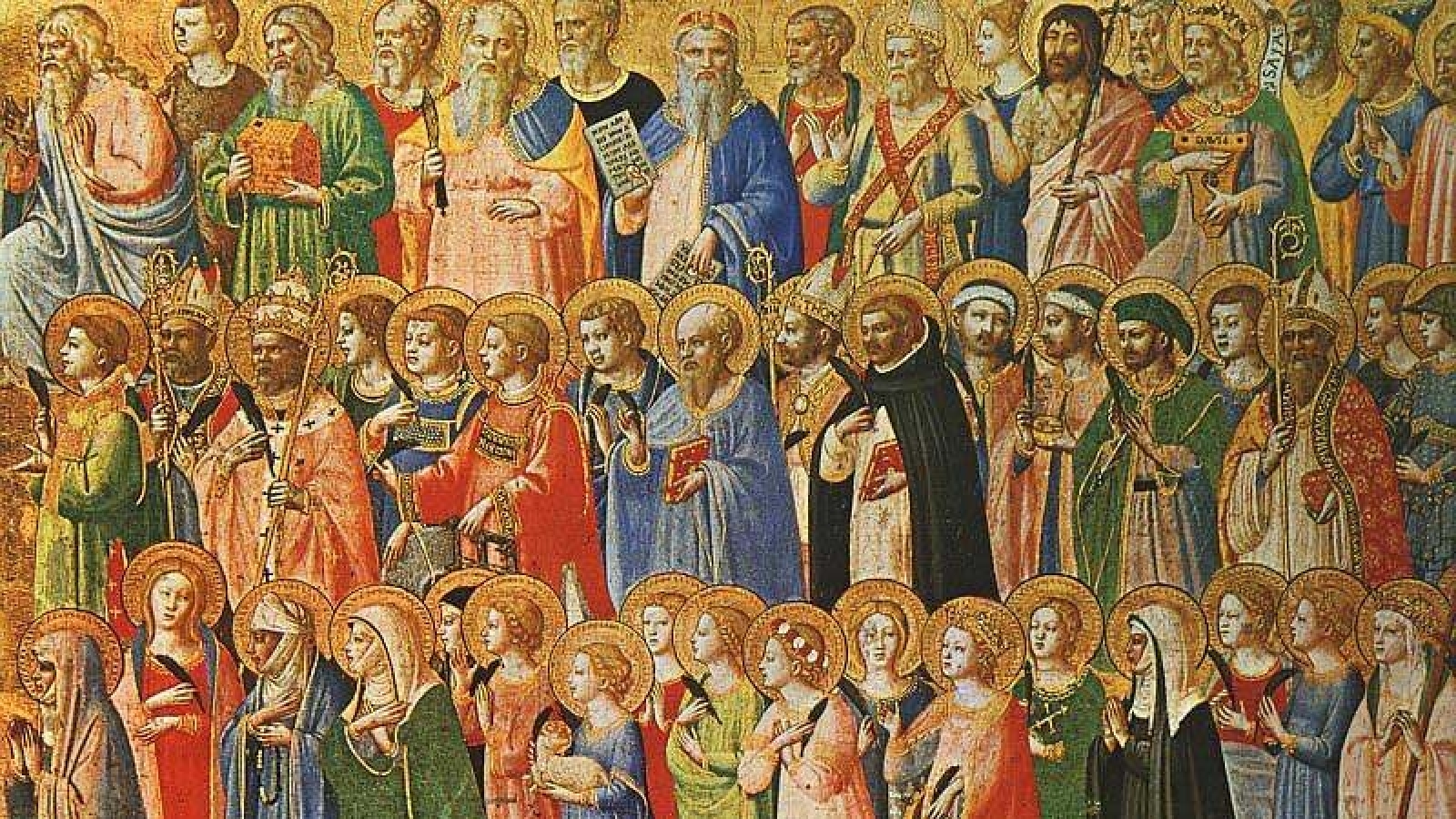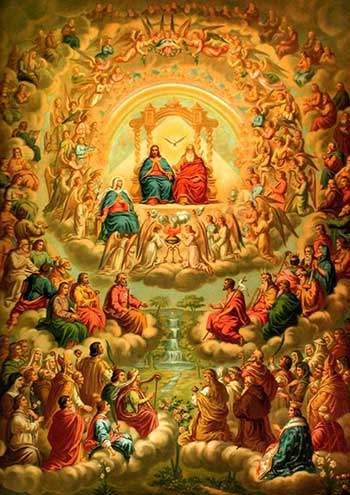
TOPICS:
Why All Saints Day Should Give Us Great Hope
Oct 27, 2025 / Written by: James Bascom
All Saints Day is too often neglected or misunderstood. In recent times, it serves mostly as the pretext for the modern world’s growing fascination with witchcraft and the occult, the day before on Halloween (“All Hallows Eve” or the Eve of All Saints).
In fact, All Saints Day is one of the Catholic Church’s greatest celebrations, one that should inspire hope and encouragement in the hearts of twenty-first-century Catholics. This special feast day is needed now more than ever before and can be a source of great spiritual strength to confront the battles of our times.
The Feast of All Saints is the day Catholics honor all the saints in Heaven, both known and unknown. Among them are saints from every century, country, and walk of life: confessors, martyrs, doctors, virgins, missionaries, housewives, clergy, laypeople, the highest nobility and the simplest commoners. They all testify to the universality and holiness of the Catholic Church, two of her four marks found in the Nicene Creed. These men and women conquered Heaven for all eternity, proving that we can and must persevere by carrying our cross until the end.
History of Honoring Saints
The Catholic practice of honoring the saints with feast days is an ancient one. Beginning in the first century A.D. under the Roman persecutions, Catholics would commemorate the deaths of the martyrs on the day of their martyrdom. Over the centuries, only a very small number of martyrs were commemorated with a feast day.

Pope Boniface IV established a feast day for All Saints on May 13, 609, when he consecrated the Pantheon in Rome to the Virgin Mary and all the martyrs. In the eighth century, Pope Gregory III moved this feast to November 1 and dedicated it to the saints and their relics. A century later, Pope Gregory IV made it a holy day of obligation.
Over the centuries, the practice of honoring all the saints and praying for the deceased became deeply rooted in Catholic culture. Even today, many traditions tied to this feast continue to be very popular among people who no longer practice the Faith.
In many European countries, All Saints Day remains a public holiday. Families often have a single plot in the cemetery for all their deceased members going back many generations. On or around All Saints Day and All Souls Day, people go in large numbers to their family gravesite to pay their respects, clean the graves, and place flowers, especially chrysanthemums. On this day, whole cemeteries will be full of thousands of lit candles – a moving remembrance of deceased family members while at the same time a witting or unwitting memento mori.
Can Catholics Pray to the Unknown Saints?
Many Catholics tend to commemorate All Saints Day by focusing on canonized saints listed in the Church Calendar. But those named saints are only a tiny fraction of the total number. Many millions, possibly billions of saints in Heaven, were unknown in life and after death. A saint by definition is anyone who is in Heaven, so all those unknown souls are really and truly saints. The main purpose for which Holy Mother Church established All Saints Day is to remember and pray to these unknown saints. These saints fought, suffered and died in struggles and battles very similar to ours today, and from Heaven are waiting for us to ask them for their intercession.
History is full of great battles between the forces of good, the sons and daughters of the Church, and the forces and agents of Lucifer. The Crusades were full of devout and holy men who fought a holy war to liberate Jerusalem from the Muslim invaders and defended Europe from the Ottoman Turks. The Vendée War in 1793 in France was fought by Catholics in defense of Altar and Throne against the satanic French Revolution. In the 1860s, when the anti-clerical and masonic armies of Giuseppe Garibaldi invaded the Papal States and Rome itself, Catholic volunteers known as the Papal Zouaves fought and died in defense of Pope Pius IX. In the 1920s, the Cristeros in Mexico rose up in arms against a radically anti-clerical government, waging a war of extermination against the Catholic Church.
In addition to these saintly heroes, millions of other men and women joined their prayers, sufferings, and sacrifices for the Catholic cause against heresies, persecutions, schisms and crises of every type. Although not canonized, this family of souls undoubtedly includes a vast number in Heaven.
In the Twenty-First Century
We too belong to that same family of souls. In the twenty-first century, the Church and temporal society face an unprecedented moral and doctrinal crisis. Like those warrior Catholics who came before us, our generation is called to resist and fight the enemies of the Church in a special way, to live saintly lives while resisting moral and doctrinal decay that surrounds us daily.
These unknown saints are undoubtably looking down on us from Heaven, eager to intercede for us before the throne of God. Catholics today can—and indeed must—pray to these unknown saints for help in the great battles of our times.
Although these saints may be unknown, their intercession is no less powerful. God sees everything and is rewarding their fidelity for all eternity. Catholics today may be living an active, public life of service to the Church or a hidden life of prayer and sacrifice. But all can have confidence that God will reward all unknown saints just as He has the known ones. As the nineteenth-century Spanish Carlistas said:



